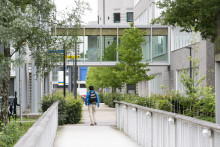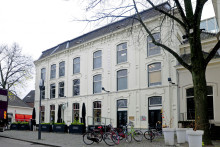Diwali, which literally translates as `row of lights,' is the Hindu festival of lights. Diwali is the most popular and eagerly awaited festival in India. It is celebrated for five consecutive days in India, in October or November, depending on the Hindu lunar calendar. The festival celebrates the victory of good over evil, light over darkness, and knowledge over ignorance, although the fables and legends that go with the festival are different in different parts of India. Diwali is known as the `festival of lights' because houses, shops, and public places are decorated with small earthenware oil lamps called diyas These lamps, which are traditionally fueled by different edible oils, are placed in rows in windows, doors and outside buildings to decorate them. The celebration of the festival is customarily accompanied by the exchange of sweets and the explosion of fireworks. Diwali is an occasion for cheerfulness and togetherness. Feasts are arranged and gaily dressed men, women and children go to temples and fairs, visit friends and relatives. Markets are cheerily decorated and illuminated. Everybody is adorned with new and bright clothes, especially ladies bejeweled with their best trinkets, capturing the convivial mood at its happiest. This is an occasion for young and old, men and women, rich and poor - for everyone - to celebrate. It's the biggest festival in India and now it's more of a cultural event rather than a religious festival.
In one of the recent editorials, the Times of India explains the significance of modern Diwali: `Regardless of the mythological explanation one prefers, what the festival of lights really stands for today is a reaffirmation of hope, a renewed commitment to friendship and goodwill, and a religiously sanctioned celebration of the simple — and some not so simple — joys of life.'
Diwali is not only celebrated in India but also by Indians living abroad. When it comes to the UT, Diwali is not a new word. For the past several years it has been celebrated by the UT Indian community and lots of enthusiastic non-Indian friends - Dutch, Italian, Canadian, Chinese.
Last Saturday, Diwali evening in the CT began with a small introduction of Diwali, its significance, and how it is being celebrated within India and abroad. It was followed by a traditional dance performance from the western part of India called dandiya. Ideally, two circles formed by men and women move in clockwise and counter-clockwise directions with two sticks called dandiyas held in their hands. The glimpse of multicultural and multilingual India was seen when various songs were sung in different languages, like Hindi, the most popular language of India, and Tamil, which is a classic language of India.
Supriyo Chatterjea, a PhD student in computer science from Singapore, recalls, `We used to go to Malaysia for Diwali celebrations. Because of its bigger Indian community, lots of cultural events were organized there. You don't appreciate these things until you really miss them.' Anindita Chatterjea, who recently married Supriyo cries in jubilation, `It's really nice and surprising to meet so many Indians around, but I still miss firecrackers at Diwali.'
After the songs there was a skit titled `Mission to the Moon,' performed by a group of people which included Kiran Hiremath (Mathematics and Science), Chandrashekhar Murade (Science and Technology), Raja Vishnu (Electrical Engineering) and Madhavi Dhobale (U. Utrecht). This funny skit kept the audience laughing for about twenty minutes. After the cultural events, Indian cuisine was served for dinner, consisting of different vegetarian and non-vegetarian dishes, such as samosa, chicken tikka masala, mixed vegetable curry, and chana masala, along with rice and the customary Indian bread, nan. `It's great to be here, this is a wonderful opportunity to know different people and their culture. The food is delicious, I liked it a lot and would like to buy a cookbook to learn it,' comments Lenzini Gabriele from Italy.
The dinner was followed by a game of Housey, a number game bearing resemblance to Bingo, and those who had their lucky day won prizes. The last bit of momentum to the night was provided by the Indian DJ, and the stage was quickly transformed into a dance floor to set the night rocking to Indian music.








